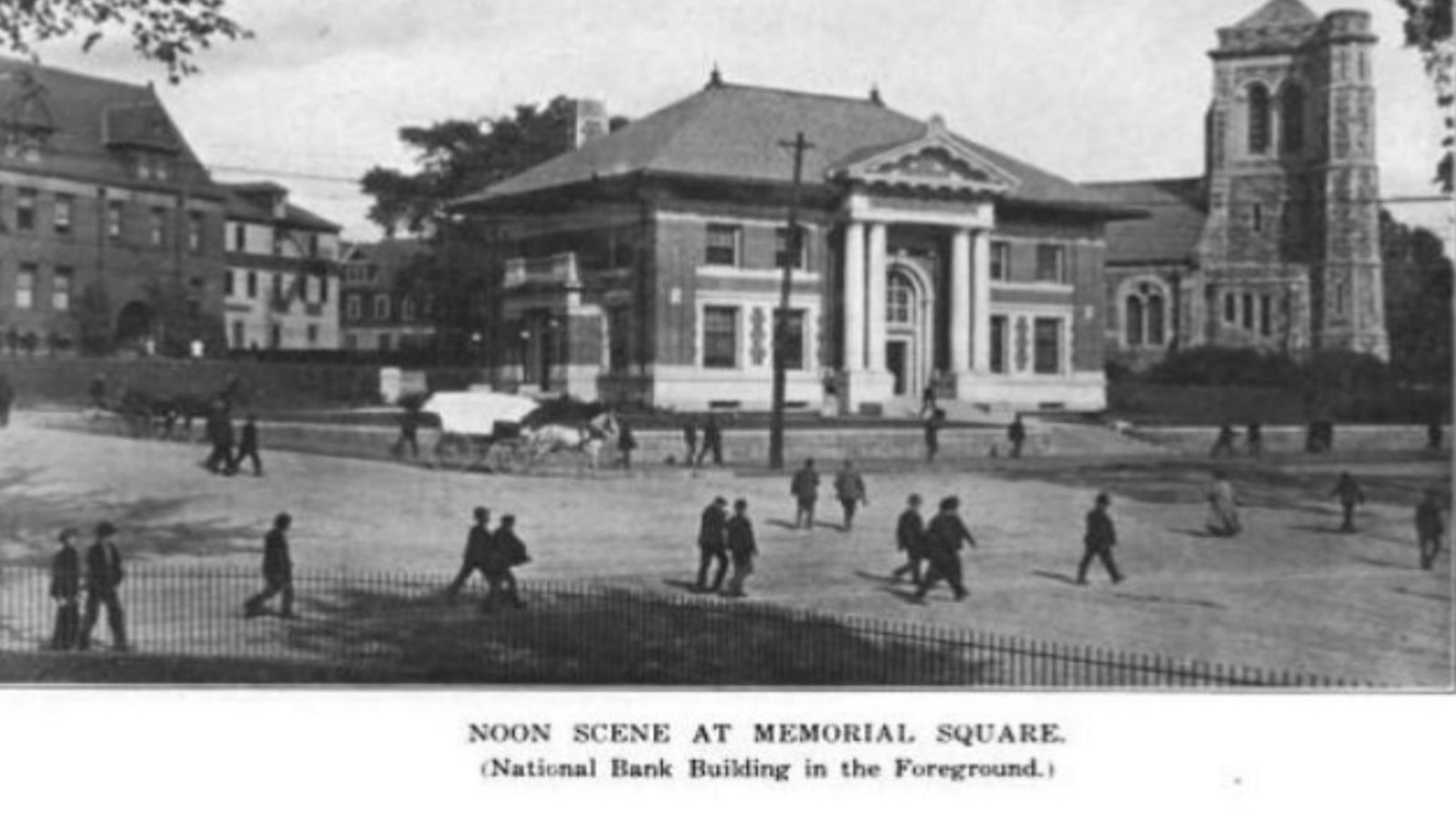Last updated: August 31, 2023
Place
Whitinsville National Bank

During the heyday of the Whitin Machine Works, some employees dedicated decades of their life to work for the company. In some cases, generations of residents worked either for the Whitins or in a supporting business.
By 1900, a passenger service on nearby Church Street made it possible for people to travel to and from the village with greater ease. Yet many of the thousands of workers for the company would reside very close to their place of work, for years or for a lifetime. Keeping amenities close and convenient was one way that the Whitins tried to secure loyalty.
In 1865, the Whitinsville National Bank opened, almost directly across from the shop. From this spot, bankers printed approximately $2.7 million dollars of national currency. For many years, the bank was directed by members of the Whitin family and/or high-level executives of the Whitin Machine Works. Shortly after this bank was constructed, this part of town changed from a crossroads to the square you see today. In the years following the creation of the square, Aldrich High School was built at 14 Hill Street (in 1890). Construction for the large Village Congregational Church, located next to the bank, began in 1897.
For the people who frequented these streets, The Whitin Machine Works was more than a place to work. The wealth generated through this company made it possible to fund the town’s schools, churches, town hall, library, and recreational facilities. An article in the Boston Sunday Post from 1929, in the last summer before the Great Depression, noted: “Whitinsville is something more than a mere industrial centre. It is one of the model villages of the world.” Francis McCool, who lived in the village, considered the balance of power in Whitinsville and saw motive for making a “model” place to live. He would argue that the Whitins “did a lot of good for people…but don’t forget, the control was there.”
A remarkable number of people stayed in Whitinsville for the better part of their lives, all for the relative stability of work at “the shop.”
